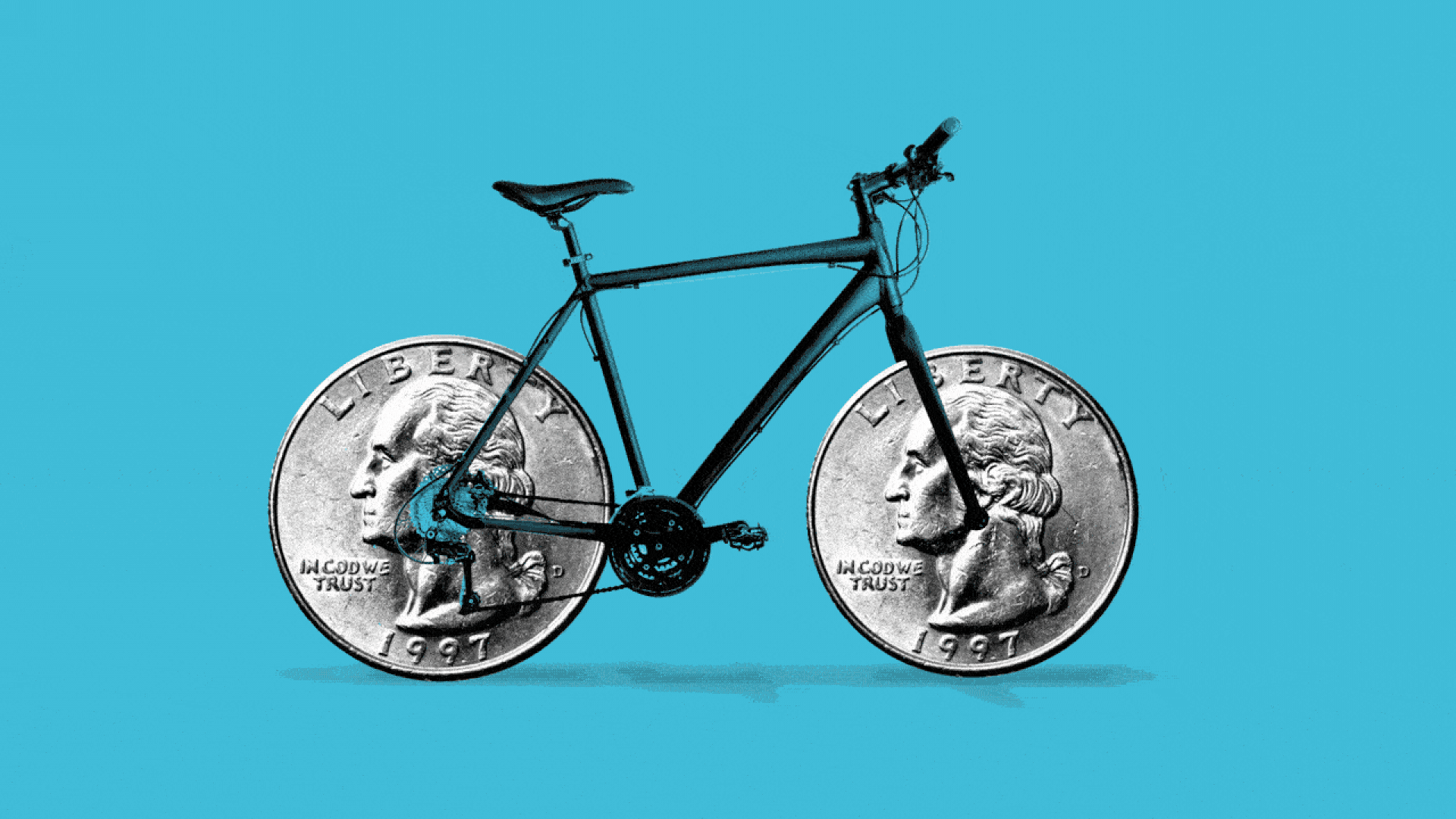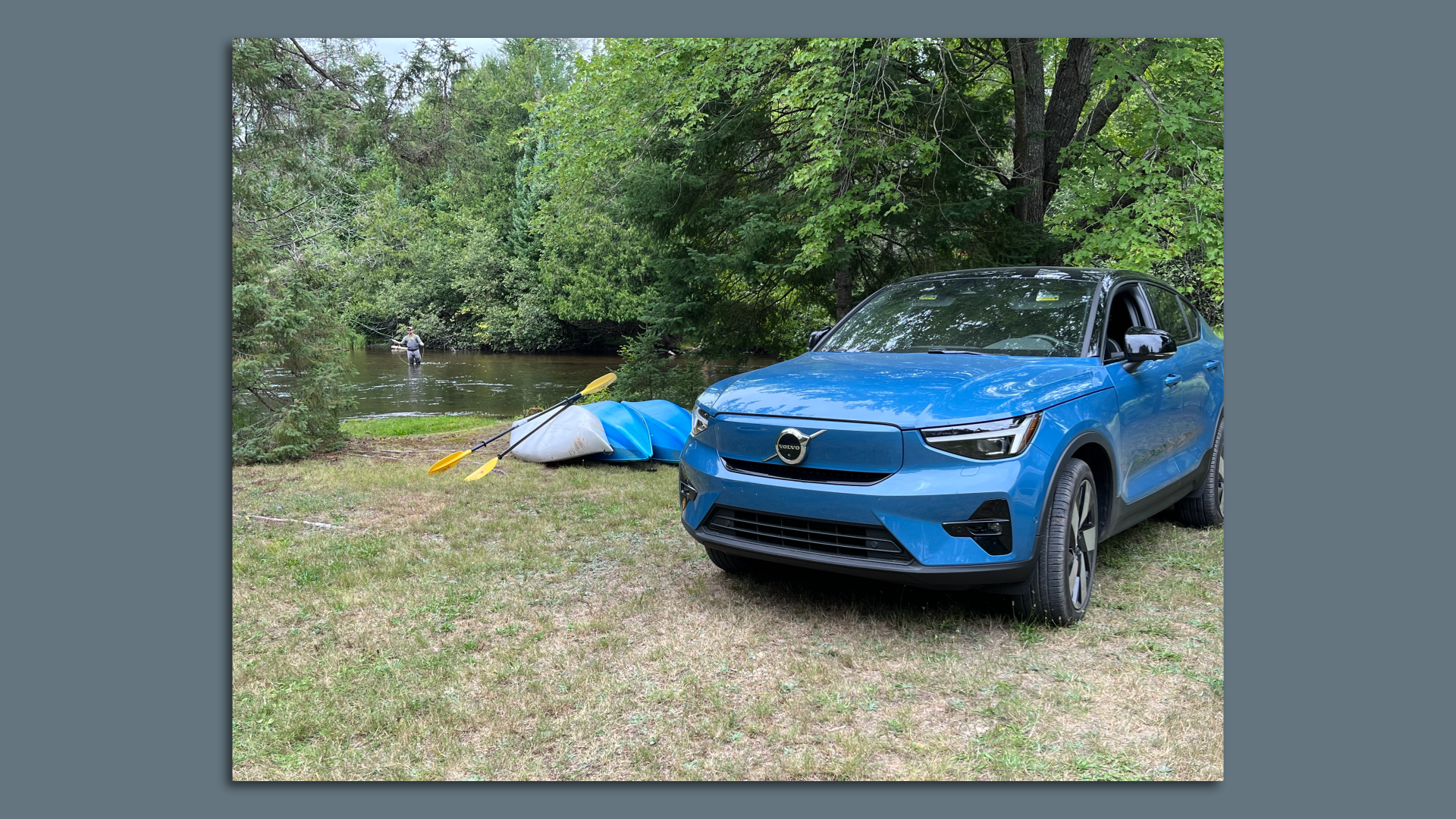| Cities, states, and major companies are racing to give people incentive to switch to electric bikes — experiments they hope will reduce car traffic and improve people's health, Jennifer A. Kingson reports. Why it matters: E-bikes, which give people varying levels of motorized assistance, are environmentally friendly alternatives to cars and trucks. - But they're expensive — typically around $2,600 for a commuter version, and $5,000 for a cargo model — so lawmakers, businesses, and others are trying to make them more accessible.
Driving the news: The number of e-bike incentive programs nationwide exploded 0ver the last year as the COVID-19 pandemic drove enthusiasm for all things bicycle. - About 80 e-bike incentive programs are active, have been proposed, or completed across the U.S. and Canada, according to a tracker maintained by Portland State University's Transportation Research and Education Center (TREC).
For example: Denver offers rebates of up to $1,700 to residents of certain income levels; Oakland is setting up a lending system in low-income neighborhoods; Worcester, Massachusetts is giving away 100 e-bikes. - Instant rebates or discounts are working better than delayed options, experts say — but it's unclear how big incentives need to be or how they should be structured to drive adoption and use.
- "There is no right way to do the incentive program right now," said John MacArthur, sustainable transportation program manager at TREC.
The big picture: On the federal level, the proposed E-BIKE Act would grant a 30% tax credit on purchases — but it got axed from the Inflation Reduction Act at the 11th hour. - Bike advocates are hopeful it will be reintroduced and passed.
And there's been record movement at the state level, with five — Colorado, Connecticut, Hawaii, Massachusetts, and Vermont — passing or renewing e-bike incentive programs, per advocacy group PeopleForBikes. What they're saying: "A lot of states and municipalities are trying to show progress on climate initiatives, and this is an easy and tangible way" to do that, said Ash Lovell, electric bike policy and campaign director at PeopleForBikes. A small 2020 Denver trial got the ball rolling, Seaward said. - 13 low-income essential workers were given e-bikes for three months during the pandemic. The results showed that personal ownership was a powerful motivator driving actual use.
The other side: E-bike disadvantages include higher injury rates than conventional bicycles, limited battery life, and more difficult upkeep. - Plus, cities tend to build bike infrastructure with traditional two-wheelers in mind, and integrating speedy e-bikes can be challenging.
What's next: California's hotly awaited $10 million e-bike incentive program has been delayed from its planned July 1 start, but its administrator — the California Air Resources Board — has begun looking for an organization to run it. - "It's the big one, you know," MacArthur said. "A very large state, a very large amount of money."
Share this story. | 








No comments:
Post a Comment